
Cola is a carbonated soft drink flavored with vanilla, cinnamon, citrus oils and other flavorings. Cola became popular worldwide after the American pharmacist John Stith Pemberton invented Coca-Cola, a trademarked brand, in 1886, which was imitated by other manufacturers. Most colas contain caffeine originally from the kola nut, leading to the drink's name, though other sources have since been used. The Pemberton cola drink also contained a coca plant extract. His non-alcoholic recipe was inspired by the coca wine of pharmacist Angelo Mariani, created in 1863.
7 Up is an American brand of lemon-lime-flavored non-caffeinated soft drink. The brand and formula are owned by Keurig Dr Pepper although the beverage is internationally distributed by PepsiCo. 7 Up competes primarily against The Coca-Cola Company's Sprite.

Sports drinks, also known as electrolyte drinks, are functional beverages whose stated purpose is to help athletes replace water, electrolytes, and energy before, during and especially after training or competition. There are many perceived benefits and questions pertaining to the efficacy of use for sports and fitness performance.

An energy drink is a type of drink containing stimulant compounds, usually caffeine, which is marketed as providing mental and physical stimulation. They may or may not be carbonated and may also contain sugar, other sweeteners, herbal extracts, taurine, and amino acids. They are a subset of the larger group of energy products, which includes bars and gels, and distinct from sports drinks, which are advertised to enhance sports performance. There are many brands and varieties in this drink category.
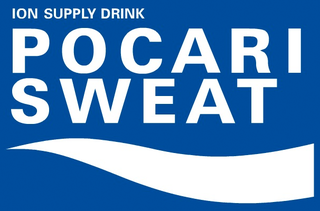
Pocari Sweat is a Japanese sports drink, manufactured by Otsuka Pharmaceutical. It was launched in 1980, and is mostly well known across Asia and the Middle East; it is also available in East Asia, Southeast Asia, Australia and Mexico.

Milo is a chocolate-flavoured malted powder product produced by Nestlé, typically mixed with milk, hot water, or both, to produce a beverage. It was originally developed in Australia by Thomas Mayne (1901–1995) in 1934.
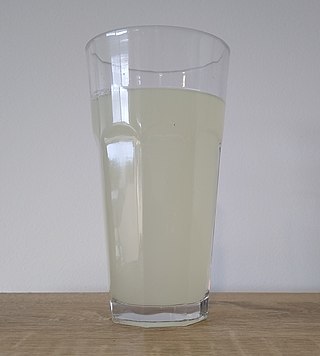
Solo is an Australian, lemon-flavoured, carbonated soft drink currently manufactured under license by Asahi Breweries. First launched by Cadbury-Schweppes Pty Ltd in 1973, its lemon flavour is inspired by Australian pubs' traditional and popular non alcoholic 'pub squash' beverage. The drink's recognition amongst the Australian population has been attributed to the brand's long lasting "Solo Man" marketing campaign, featuring numerous Australian actors. Solo and Asahi Holdings operates in the soft drink manufacturing industry along with various other brands such as Coca-Cola. The usual 375mL can of Solo contains 43.1 grams of sugar. There are and have been in the past, various versions of Solo available. These include Solo Zero, which uses artificial sweetener instead of sugar and there has also been a lemon and lime flavoured variant of the original recipe.

Lipovitan, marketed in some English-speaking countries under the name Libogen and Livita, is an energy drink manufactured by Taisho Pharmaceutical Co. and its licensee Osotspa. Widely available in Asia, it retails in brown-colored translucent 100 ml bottles, and its contents has a distinctive bright yellow color. Lipovitan is marketed to alleviate physical and mental fatigue.

Krating Daeng is a sweetened, non-carbonated energy drink developed by Chaleo Yoovidhya. The drink is marketed and sold primarily in Southeast and East Asia; its derivative, Red Bull, is available worldwide in 165 countries.
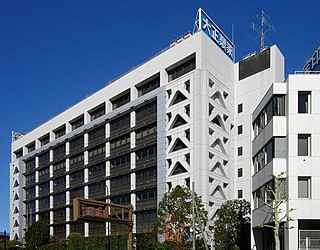
Taisho Pharmaceutical Co., Ltd. is a Japanese pharmaceutical company based in Tokyo.

Bacchus is a non-carbonated South Korean energy drink, first launched in 1963. It is known by the brand names Bacchus-D and Bacchus-F, while the amount of Taurine in the latter product (2000mg) is higher. Both formulas are manufactured by Dong-A Pharmaceutical Co., Ltd., part of the Dong-A Socio Group; and is also distributed in the United States under the Dong-A America Corporation in a 3.3 oz glass bottle.
Yunker Kotei Eki, Yunkeru Kotei Eki (ユンケル黄帝液), is a health tonic similar to Lipovitan and produced by the Sato Pharmaceutical Corporation in Japan. It was first produced in 1967, and is widely available at drug stores throughout Japan. Yunker contains Chinese herbal ingredients and caffeine and is marketed to the Japanese workforce to combat fatigue.
Tiger is an energy drink, produced by Polish company Maspex.
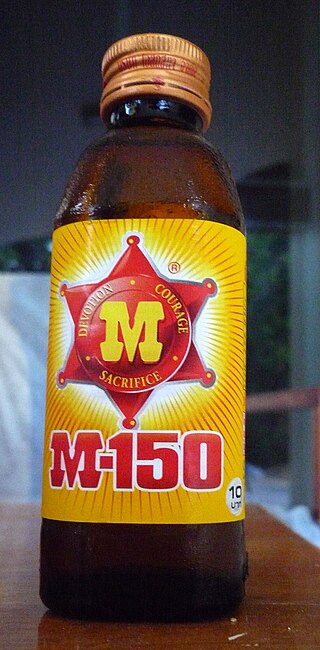
M-150 is a non-carbonated energy drink marketed by Osotspa Company Limited. In Thailand, it is sold in 150 mL glass bottles. In 2010, it was reported that M-150 had a 65 percent share of market but dropped to 46 percent by 2014.

Osotspa Public Company Limited is a Thai beverage producer of drinks such as M-150 and Shark Stimulation. It is based in Bangkok.

Sarsaparilla is a soft drink originally made from the vine Smilax ornata or other species of Smilax such as Smilax officinalis. In most Southeast Asian countries, it is known by the common name sarsi, and the trademarks Sarsi and Sarsae. It is similar in flavour to root beer. In the US, sarsaparilla is traditionally made with birch oil rather than the tropical plant.
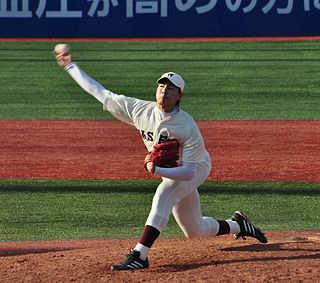
The 2014 Nippon Professional Baseball (NPB) Draft was held on October 23, 2014, for the 50th time at the Grand Prince Hotel Takanawa to assign amateur baseball players to the NPB. It was arranged with the special cooperation of Taisho Pharmaceutical Co. with official naming rights. The draft was officially called "The Professional Baseball Draft Meeting supported by Lipovitan D".
Super Power Samut Prakan Football Club was a Thai football club based in Samut Prakan province. This club played in the Thai League 1. The club appeared in the AFC Cup 2007, the Asian equivalent of the UEFA Cup, and played its final group match against Singapore's Tampines Rovers on 22 May 2007 at the Thai Army Sports Stadium. In 2007, the team has adopted the yellow and red colours of its main sponsor, M-150, and wears yellow shirts with red trim and red shorts and socks.














